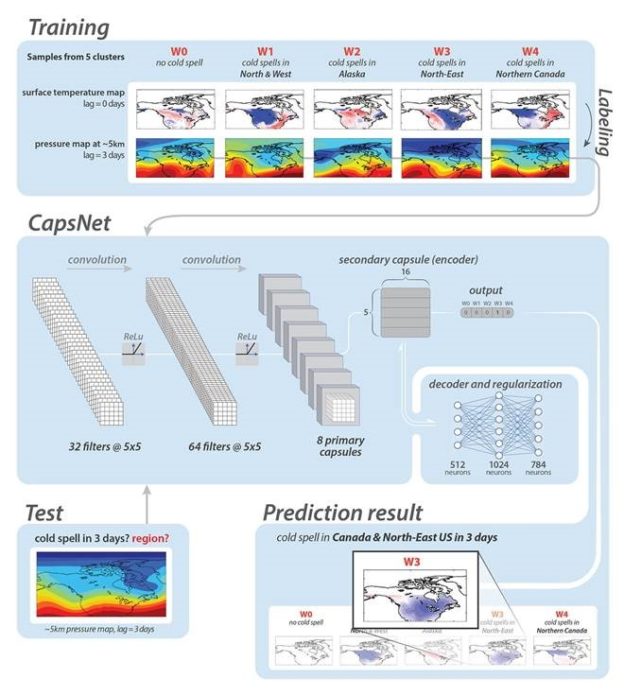Comments
- No comments found

Deep learning algorithms have demonstrated significant potential in the field of weather forecasting.
The importance of weather forecasting has attracted the attention of numerous researchers from diverse scientific communities.
Deep learning is very effective when it comes to nowcasting, an area which involves predicting weather conditions for a period of 2-6 hours in advance.
Weather forecasting has come a long way in recent decades, but there's still plenty of room for improvement.
Predicting the weather accurately can be challenging due to the complexity of atmospheric phenomena, but deep learning has shown great promise in this field.
Deep learning is a subfield of artificial intelligence (AI) that involves training artificial neural networks to recognize patterns in large datasets. These networks can learn to make predictions based on past observations and can improve their accuracy over time as more data becomes available.
In weather forecasting, deep learning has been used to predict a variety of weather phenomena, from precipitation and temperature to extreme events like hurricanes and tornadoes. One of the most significant benefits of deep learning in weather forecasting is the ability to make predictions at a much higher resolution than traditional models.
Traditional weather models use a grid of points to make predictions, which can lead to inaccuracies in areas with complex terrain or other local factors. In contrast, deep learning models can make predictions at a much finer scale, taking into account local variations in temperature, humidity, and other factors.

Deep learning has the ability to handle large amounts of data in real-time. This is crucial for predicting rapidly changing weather conditions, such as thunderstorms and other severe weather events. Deep learning models can analyze large amounts of data from multiple sources, including weather stations, satellites, and radar, to provide accurate and timely predictions.
One example of deep learning in weather forecasting is Google's TensorFlow framework, which has been used to develop machine learning models for weather prediction. Google's TensorFlow Weather Bench dataset includes over 60 million data points from weather stations around the world, which can be used to train and test deep learning models.
Another example is the National Oceanic and Atmospheric Administration's (NOAA) use of deep learning to improve hurricane forecasting. In 2020, NOAA used a deep learning model to predict the track and intensity of Hurricane Laura, which hit the Gulf Coast in August of that year. The model was able to predict the hurricane's path with a higher degree of accuracy than traditional models, giving residents more time to prepare and evacuate.
Deep learning has the potential to revolutionize weather forecasting by providing more accurate and timely predictions. With its ability to handle large amounts of data in real-time and make predictions at a much higher resolution, deep learning could help save lives and reduce the economic impact of extreme weather events. As technology continues to advance, we can expect to see even more exciting developments in the field of weather prediction.
Leave your comments
Post comment as a guest